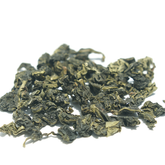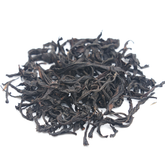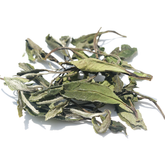How to Make Tea Taste Better and the Science Behind It

These flavor-presenting substances are precipitated by the action of hot water, and how quickly they are precipitated, as well as the amount, will determine the richness of the tea broth. So in order to make the tea taste good, we need to pay attention to the key is to control the precipitation speed and content of these substances. The factors that affect this include the water temperature, the amount of tea thrown in, and the length of time the tea leaves are steeped.
Steeping time of tea leaves
Regardless of the type of tea utensil you use to make your tea, such as a Chinese gaiwan or a Chinese Yixing Zisha pot, it is important to note that the tea leaves will steep for a long time. One thing that you need to pay special attention to is not to steep the tea leaves for a long period of time, as the flavoring substances of the tea leaves will precipitate out too much, which will lead to bitterness and astringency problems, unless your tea consumption is very low. For green tea, jasmine tea, we can choose the glass cup brewing, but you need to pay attention to the amount of tea can not be more, otherwise it will be very bitter, this is because a lot of caffeine will be precipitated, resulting in bitter tea.
Proper water temperature
Brewing tea is all about water, and even more about water temperature. Although tea should be drunk while hot, but not all tea is suitable for 100 degrees boiling water brewing. The higher the temperature of the water, the faster the substances in the tea will precipitate out, and the stronger the tea will be. Tea picking production, the raw material requirements, such as pre-mingzhen high-grade Xihu Longjing green tea, generally choose the tender tea buds, it is not suitable for boiling water, otherwise the tea will be scalded, affecting the taste and texture. For Fujian oolong tea, it is not suitable for low-temperature brewing, otherwise it will not be able to bubble, and the aroma can not be better rendered, and can not fully release the essence of the tea's contents. Qingxiang type Tieguanyin suitable for choosing about 90 degrees of hot water brewing, and Wuyi Dahongpao water temperature is best controlled at about 95 degrees. For black tea, such as Dian Hong, in principle, should not use boiling water brewing, you can choose about 90 degrees of hot water, otherwise the black tea is prone to acidity. When brewing black tea and Pu-erh ripe tea, because of the production process and storage time, high temperature boiling water should be used.
The right amount of tea is the most important
The amount of tea is the key to making a good cup of tea. With the same volume of tea set, the more tea is thrown in, the stronger the tea soup is and the more bitter the flavor is. The less the amount of tea, the less the tea aroma and the lighter the flavor. Therefore, the right amount of tea is the only way to make a cup of fresh, strong and refreshing tea. Different teas, the amount of tea is different, the novice can follow these two ways to determine. The first is the ratio of tea to water, generally speaking, green tea, black tea and white tea, yellow tea, etc., should follow the standard of 1:50, i.e., 1 gram of tea 50 milliliters of hot water, a 150-milliliter tea set, with 3 grams of tea can be. Oolong tea and Pu'er tea, etc., can follow the standard of 1:30. The second is to throw tea according to the volume, green tea, yellow tea and black tea, can be in accordance with the way to cover the bottom of the bowl to throw tea, if it is the Yunnan large-leafed black tea, because of the large volume, the amount of tea should be a little more. Oolong tea is mainly spherical and striped, of which spherical to cover the bottom of the bowl can be, striped oolong tea accounted for about 1/5 to 1/3 of the capacity of the bowl. White tea should be specific district dispersed tea and tightly pressed tea, loose tea fluffy, the amount of tea to account for the volume of the cover bowl 1/2 to 3/4, tightly pressed tea volume is small, the amount of tea can be about 1/5.

Summarize
Tea leaves contain very many natural chemical components, which are rapidly precipitated under the action of hot water. Different substances present different flavors, we just need to reasonably control the amount of tea, water temperature, steeping time to brew a better cup of tea. When you get a tea, you need to pay attention to the fact that there is no fixed method of brewing, tea is flexible, everyone has different preferences for the strength of the tea. You need to test more to find the best brewing method, and of course, you can also follow the brewing advice given by the merchant, as this is the best result of many tests conducted by the merchant.
SEE MORE
If you have questions about selecting tea:
Learn-more-about-chinese-tea
If you have questions about the benefits of tea:
Health-benefits-of-chinese-tea
If you have questions about brewing tea:
How-to-brew-loose-leaf-tea






